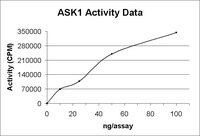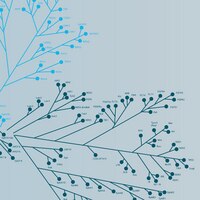14-606 Sigma-AldrichASK1 Protein, active, 10 µg
Active, N-Terminal GST & C-terminal His6-tagged, recombinant, human ASK1 amino acids 649-946, for use in Kinase Assays.
More>> Active, N-Terminal GST & C-terminal His6-tagged, recombinant, human ASK1 amino acids 649-946, for use in Kinase Assays. Less<<Recommended Products
Przegląd
| Replacement Information |
|---|
| References |
|---|
| Product Information | |
|---|---|
| Quality Level | MQ100 |
| Applications | |
|---|---|
| Application | Active, N-Terminal GST & C-terminal His6-tagged, recombinant, human ASK1 amino acids 649-946, for use in Kinase Assays. |
| Key Applications |
|
| Physicochemical Information |
|---|
| Dimensions |
|---|
| Materials Information |
|---|
| Toxicological Information |
|---|
| Safety Information according to GHS |
|---|
| Safety Information |
|---|
| Storage and Shipping Information | |
|---|---|
| Storage Conditions | 6 months at -70°C |
| Packaging Information | |
|---|---|
| Material Size | 10 µg |
| Material Package | Also available in 250 µg size --call for pricing and availability and reference catalog number 14-606M when ordering the 250 µg size. |
| Transport Information |
|---|
| Supplemental Information |
|---|
| Specifications |
|---|
| Global Trade Item Number | |
|---|---|
| Numer katalogowy | GTIN |
| 14-606 | 04053252270673 |
Documentation
ASK1 Protein, active, 10 µg MSDS
| Title |
|---|
ASK1 Protein, active, 10 µg Certificates of Analysis
| Title | Lot Number |
|---|---|
| ASK1, active - 28412U-J | 28412U-J |
| ASK1, active - 28412U-K | 28412U-K |
| ASK1, active - 28412U-M | 28412U-M |











